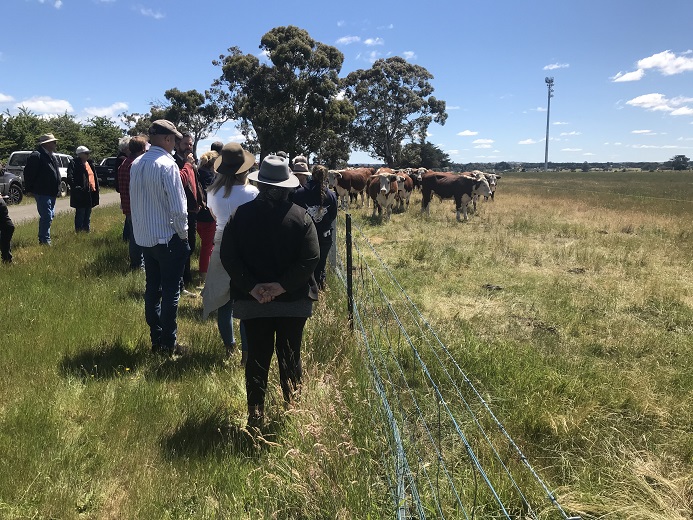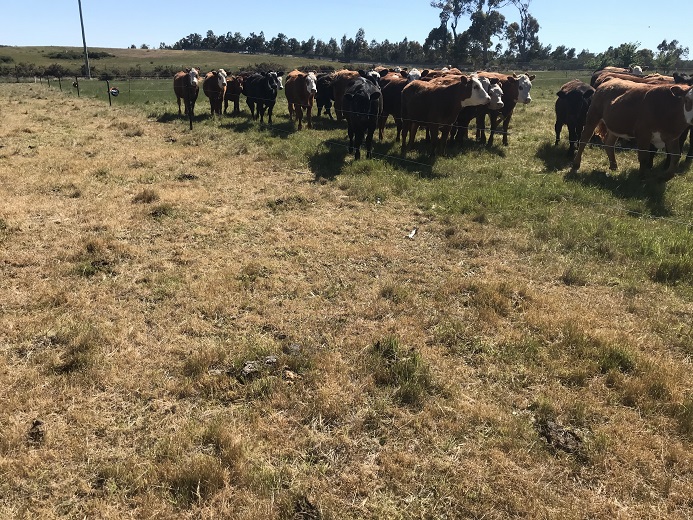
A Victorian council’s project to help local livestock farmers implement regenerative agriculture techniques has been recognised by the premier.
Macedon Ranges Shire Council was awarded the Premier’s Regional Recognition Award at last week’s Premier’s Sustainability Awards for its Healthy Landscapes for Healthy Livestock project.

Jason McAinch, Council’s Private Land Conservation Officer, said the award is great recognition of the work Council is doing to support rural landowners within the shire.
“Rural landowners have seen real value in the program and have been actively changing their practices as a result of the program,” he told Government News.
At the completion of the project, all 110 participants said they had positively changed their land management practices.
Local support
Mr McAinch believes the project was a success because participants had someone local supporting them by visiting their properties and helping them identify the first steps needed to meet their goals.
“We get paralysis by analysis and don’t really know where to start,” he said.
“Having someone that’s local, that can have a chat with them about their own local experiences and present information from a local perspective… is where the program has been able to support people.”
The project was initiated in September 2019 after Council identified through its biodiversity strategy that it needed to engage private land holders to help make a positive impact on biodiversity.
It was also a response to poor land management outcomes observed across the Macedon Ranges.
“The bulk of the lands are owned by private landowners, so we need to support them in making active changes,” Mr McAinch said.
Most of the project was delivered online through webinars and short courses that taught participants about different regenerative agriculture techniques.
Feedback from participants
Mr McAinch supported participants throughout the project by visiting them on their property and helping them identify the first steps to reaching their goals.

Participants varied in the livestock they managed, from cattle, goats and sheep to horses and alpacas, however, all participants had the same goal.
“All land owners that I’ve come across want to leave the property in a better shape than what they inherited it or purchased it,” Mr McAinch said.
At the evaluation conducted at the completion of the project, all participants indicated they had made changes to their land management practices.
“It was mainly around the support that they received…that they had someone to bounce ideas off as they made changes,” Mr McAinch said.
“And I think that’s really important because they are making, in some cases, a significant change.”
The individualised aspect of the project also really resonated with the farmers.
“They felt that the program addressed their individual need and individual goals, that was also really critical; It wasn’t just a generic, ‘go and do this and go and have a crack at that’,” he said.
“All land owners that I’ve come across want to leave the property in a better shape than what they inherited it or purchased it.” – Jason McAinch, Council’s Private Land Conservation Officer
Creating community
A by-product of the project was the community formed by the participants, who created their own Facebook group to support each other, share tips and ask about techniques others are using on their land.
“Farmers are crazy experimenters… they’re doing experiments on their property all the time to improve what they’re doing,” Mr McAinch said.
“It’s really valuable that they can communicate with each other about that. I think the success was around just bringing likeminded people together.”
For other councils interested in starting a similar project, local support is important, Mr McAinch said
“I think there’s a great benefit having someone local that can support private landowners in making positive changes to the biodiversity in their environment.”
The project will be extended for another 12 months and will also run in City of Greater Bendigo and Hepburn Shire Council.
Comment below to have your say on this story.
If you have a news story or tip-off, get in touch at editorial@governmentnews.com.au.
Sign up to the Government News newsletter